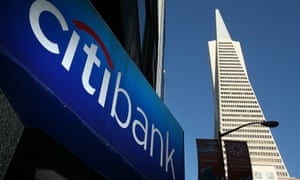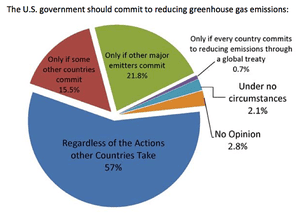Citi report: slowing global warming would save tens of trillions of dollars
Citi Global Perspectives & Solutions (GPS), a division within Citibank (America’s third-largest bank), recently published a report looking at the economic costs and benefits of a low-carbon future. The report considered two scenarios: “Inaction,” which involves continuing on a business-as-usual path, and Action scenario which involves transitioning to a low-carbon energy mix.
One of the most interesting findings in the report is that the investment costs for the two scenarios are almost identical. In fact, because of savings due to reduced fuel costs and increased energy efficiency, the Action scenario is actually a bit cheaper than the Inaction scenario.
The following figure from the Citi report breaks down the investment costs in the Action ($190.2 trillion) and Inaction ($192 trillion) scenarios.
This conclusion soundly refutes the main argument against climate action – that it’s too expensive, with some contrarians even having gone so far as to claim that cutting carbon pollution will create an economic catastrophe. To the contrary, the Citi report finds that these investments will save money, before even accounting for the tremendous savings from avoiding climate damage costs.
What about those avoided climate costs? As shown in the bottom left corner of the above figure, the difference in climate damage costs between low (1.5°C) warming and high (4.5°C) warming scenarios could be as high as $50 trillion. Even moderate (2.5°C) warming could cost $30 trillion less than a business-as-usual high global warming scenario.
As a result, the Citi report concludes that taking action to cut carbon pollution and slow global warming would result in a positive return on investment.
This isn’t a groundbreaking finding. Other reports have arrived at the same conclusion, and have found that a revenue-neutral carbon tax would be modestly beneficial for the economy (again, before accounting for the economic benefits of curbing global warming). This is why there’s a consensus among economists that we should be reducing carbon pollution.
The Citi report then asks the trillion-dollar question – if tackling global warming is such an economic no-brainer, what are we waiting for?
Dave Roberts at Vox took a stab at answering that question, and the answer is touched upon in the Citi report:
While the global economy would clearly benefit from climate action, it would create “stranded assets” for the fossil fuel industry, because a large percentage of known fossil fuel reserves must be kept in the ground if we’re to avoid dangerous climate change.
The fossil fuel industry has extensive influence over many world governments. They hire Merchants of Doubt to spread disinformation and uncertainty about the science and economics of climate change, and spend billions of dollars in campaign contributions to American political candidates in order to delay the low-carbon transition that would benefit the global economy and most people.
They can’t, however, change the scientific and economic realities that clearly indicate we must take action to minimize the damages from human-caused global warming. As the Citi report concludes, the international climate conference in Paris at the end of this year will be a critical opportunity for world leaders to finally commit to curbing global warming for the benefit of the vast majority, at the expense of the few wealthy and powerful fossil fuel interests.



Comments